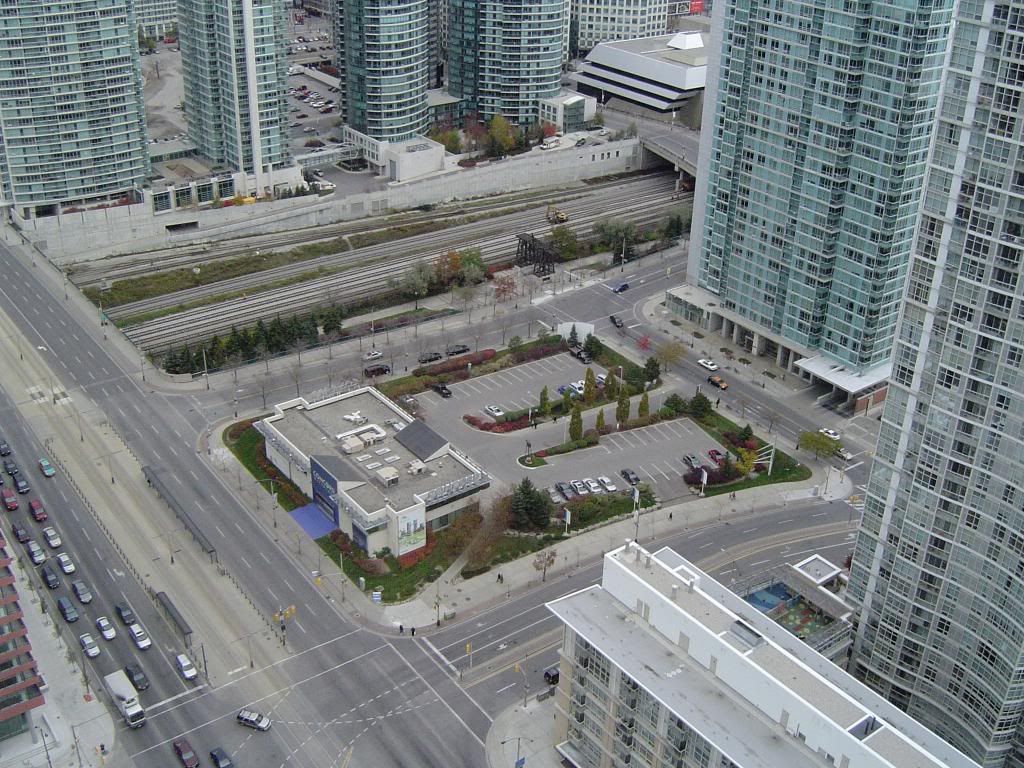Condo projects in jeopardy
Condo projects in jeopardy
Experts say it's matter of time until the credit crunch derails one of many GTA tower plans
October 28, 2008
Comments on this story (33)
Tony Wong
BUSINESS REPORTER
The credit crisis and slowing economy are frustrating real estate developers' planning and could derail some Toronto condominium projects currently under way, prominent Canadian developers say.
"I think we've definitely oversold the market," said Brian Johnston, president of home and condominium developer Monarch Corp. and a past president of the Ontario Home Builders' Association.
"The question is whether all these buildings are still going to be built a few years from now. I think you're seeing a real possibility that some won't be going up."
About 300 projects were selling in the Greater Toronto Area in the first half of the year – more than in any other North American city.
With the cost of credit globally going up, banks have also been much more cautious of the slowing real-estate sector, Johnston said.
"It's not easy to get construction financing today at reasonable prices, the banks seem to be changing the interest rates every day," said Dennis Au-Yeung, chief financial officer of Concord Pacific Group Inc., the largest condominium builder in Canada.
"If the problems continue we will have to look at our future plans and projects in the Toronto market," said Au-Yeung.
Banks typically request that a project must be 60 per cent to 70 per cent sold before they will provide financing.
Buildings that don't get those sales will fail. Analysts have warned repeatedly of a possible smaller correction in the 10 per cent to 15 per cent range for the Toronto condominium market, although even that has not happened yet.
Signs indicate there's still demand. Last week, buyers lined up overnight to purchase units from the Emerald City project near Fairview Mall, reminiscent of 2007 or the 1980s boom years.
Still, other signs point to a slowdown. Au-Yeung notes that one benefit of a slowdown may be decreased future construction costs.
"Two years ago the contractors wouldn't even give you a price. They would say they are too busy. Now they are calling and asking when is the next project," he said. Au-Yeung added his company will likely decide to negotiate construction contracts later rather than sooner.
Privately owned Concord Pacific is developing the City Place site on former railroad lands in downtown Toronto and another huge site on Sheppard Ave. E. in North York.
The developer says projects already in the pipeline are continuing as planned.
One concern among some analysts is that many condo buyers were investors seeking to resell the property later for a gain.
"Investors are acting on opportunity and emotion as opposed to analysis and sober reflection," said Johnston.
"They've made a heck of a lot of money over the last few years. They'll buy an apartment and sell it and it was the easiest $50,000 they ever made. But it's the classic mistake of thinking the market will go on like this forever."
Johnston, whose company is building many high- and low-rise projects in Toronto and Ottawa, said sales are down about 20 per cent this year – in line with the general trend.
Monarch parent company English-based Taylor Wimpey PLC is also struggling under a heavy debt load and has seen its share prices slashed as housing takes a hit globally.
"We are nothing like what's happening in the U.S.," said Johnston. "They've reached the stage where some developers have mothballed projects or had no pro-active development over the last year."
Still, Toronto has an estimated 2.5 months of new housing supply, compared with some of the other cities that have more.
While slowing sales may be one issue, a tight credit market also threatens to hamper developments with financing already in place.
A Vancouver five-tower development is searching for new financing following the collapse of Lehman Brothers Inc. in New York. Construction is halted on the project. So far, no projects have been halted in Toronto over financing issues.
Phil Soper, chief executive of Royal LePage, said most large real estate development companies had already pulled back their forecasts for this year.
"The last month has brought out more conservatism in the industry," Soper said.
"Some projects that were at an early stage and that were well before construction will likely be delayed."
Johnston, who is currently marketing eight condominium projects and 18 low-rise projects, said the company stopped buying land two years ago in preparation for a downturn.
"We have been concerned about a slowdown for a while and we needed to take a pause," said Johnston.
"There are only so many ways to cut the pie and we have cut it pretty fine.
"If a lot of projects get cancelled it will create a stir, but it will also bring back some balance to the market."
So far, only one buyer this year has walked away from one of his condo projects, leaving behind a $40,000 deposit, he said.
Toronto Star

